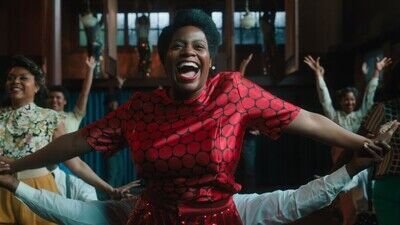When Nettie runs away, the sisters lose contact, and without a sister, reliable family, and children, Celie finds herself alone navigating the daunting decades to come. Her husband, violent in every sense of the word, is in love with another woman, Shug Avery (Taraji P. Henson), a “fast and loose” blues singer who never stays in one place for too long. The only comfort Celie finds is in the distant hope that her sister and children are alive somewhere, and in the support of Shug and Sofia (Danielle Brooks), her courageous and strong-willed daughter-in-law.
The performances in “The Color Purple” are the absolute cornerstone of the film’s success. Mpasi and Barrino, both making their film debuts, play Celie perfectly, showcasing the character’s ruminations and hesitations, but also her aggrieved resilience. Mpasi in particular is totally gravitational, her hypnotic smile and captivating, wordless expressions inducing shivers. The chemistry between her and Bailey is spot on, their bond sold with such authentic vigor that the estrangement at the film’s center remains affecting despite Nettie’s absence on screen.
Barrino, as the older Celie, is also incredible, retaining a sense of childlike naivety in the veneer of her performance, expertly portraying a woman who is older, but has been developmentally and socially trapped by the tyrannical men in her life.
Brooks, a Tony nominee for her stage performance, stars in the film, delivering an undeniably crowd-pleasing performance. His charismatic presence is captivating and his emotional dexterity in covering the entire spectrum of affectations, from tears to outbursts, is a joy to behold. Sofia is praised for her refusal to be ignored, underestimated, or disrespected, and Brooks’ performance demands the same.


